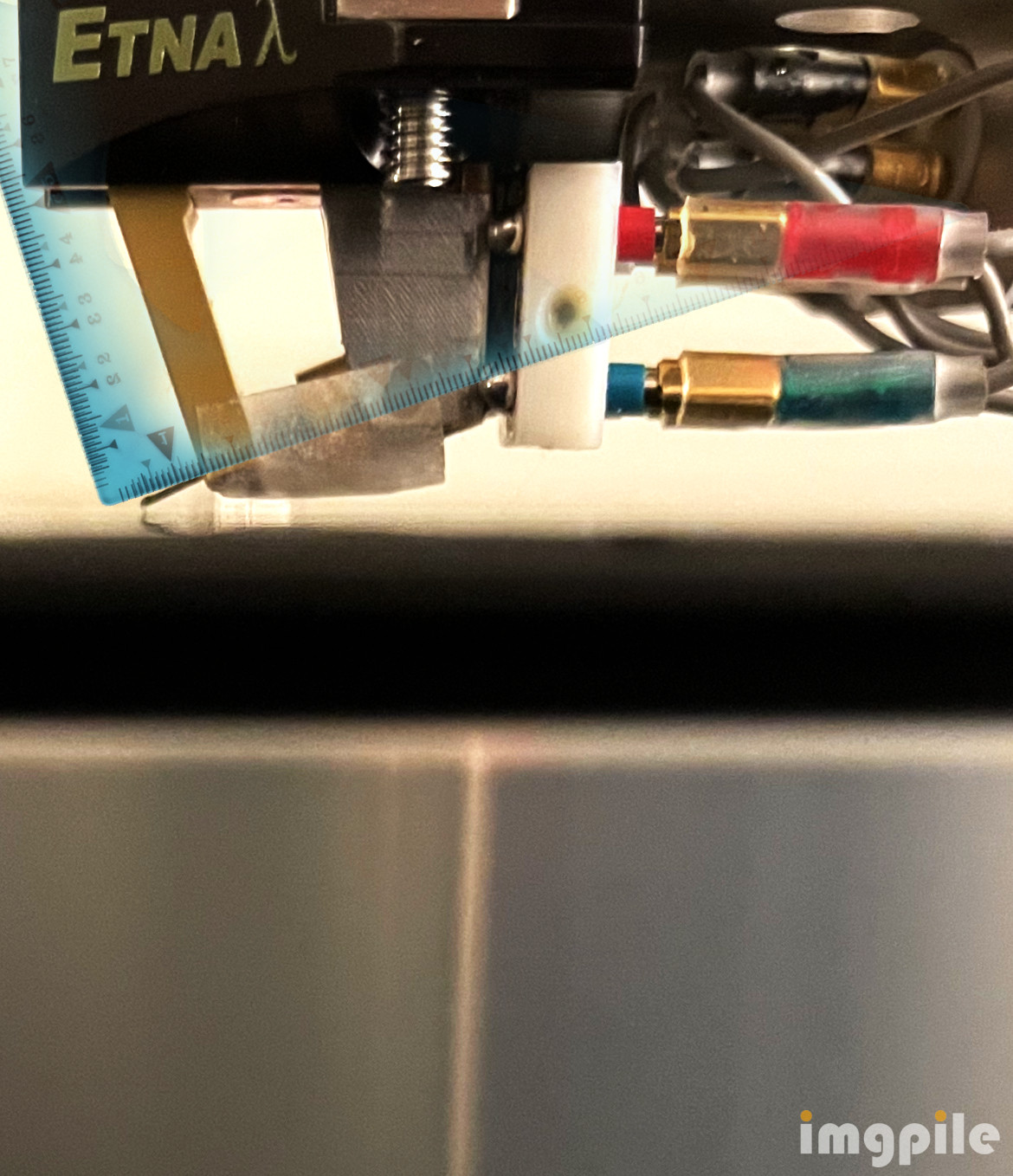The designer knows what he's talking about....follow the instruction
Lyra Etna Lambda SL tracking force
On another thread @newtoncr posted a question about VTF for the Etna Lambda SL cartridge: he queried whether his preferred tracking force of 1.8 - 1.9 g (mounted on an SME Series V arm) was OK given this was outside Lyra's recommended range of 1.62 - 1.72 g.
The instructions that came with the Etna Lambda SL I've just had installed on a Linn Ekos SE arm state:
‘Note that Etna SL (Lambda) features a new high-performance asymmetrical damping system, designed to make the signal coils precisely parallel to the front and rear magnets during play. The angle between signal coils and magnets is affected by tracking force, and we strongly advise not to deviate beyond our 1.68-1.78g guidelines. Setting tracking force so that the cantilever is exactly perpendicular to the (yellow) front magnet carrier during play should result in the largest dynamic range and best sound.’
For me the sweet spot appears to be 1.75g, at which setting the cantilever is still not exactly perpendicular to the magnet carrier (see photo) – suggesting that there is scope for further increasing VTF.
As the cartridge is breaking in I'm reluctant to increase tracking force. I'm wondering if anyone on here with experience of Lyra cartridges has used the 'perpendicular alignment' method?
